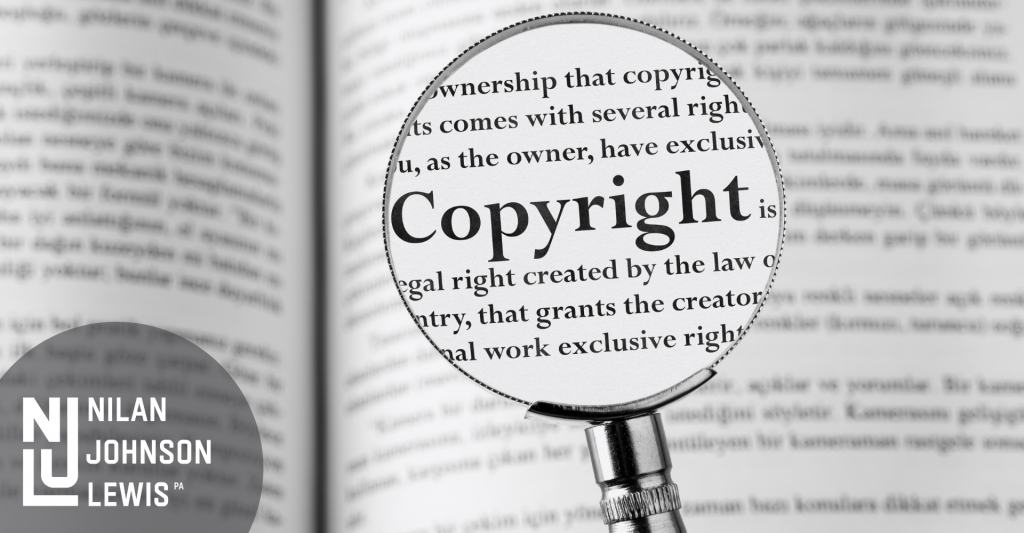
Posted November 29th, 2021 in Top Stories, Legal Insights with Tags COVID-19 for Employers
COVID Impacts Work-Made-For-Hire Doctrine Analysis
Work-For-Hire Doctrine
Under copyright law, artists generally own the rights to the work they create. However, an exception exists when an artist’s work qualifies as a “work made for hire” under Section 101 of the Copyright Act. A work made for hire includes (1) a work created by an employee in the scope of their employment and (2) a work created as a result of an express written agreement between the creator and a party specifically commissioning the work.
Scope of Employment
The work-for-hire doctrine provides that any work created by an employee is automatically owned by the employer so long as the artist was an employee at the time of the work’s creation and the employee created the work within the scope of employment. When considering whether a copyright work was created within the scope of employment, many courts look to a number of factors, including, whether the creation of the work was the type of task the employee was hired to perform, whether the employee created the work substantially within the job’s authorized time and space, and whether the employee created the work at least in part to serve the employer. Therefore, if an employee creates the work outside the work environment and on the employee’s own time and with his or her own resources, the employee owns all rights to his work.
COVID-19
As a result of COVID-19, a massive shift in the workplace has occurred in terms of when and where employees complete their work. With many employees utilizing remote workspaces, the line between the employee’s workday and personal time may be blurred and open to misunderstanding as compared to time spent in a traditional workplace environment. It is no surprise that the pandemic has made it seemingly more difficult to identify whether a work created by an employee was produced in the authorized time and space limits, and thus within “the scope of employment.” Therefore, it is important for both employers and employees to clearly understand the boundaries and limits of the work made for hire doctrine to prevent future disputes and litigation around ownership rights associated with the work, including the right to grant licenses and sue for copyright infringement.
Considerations for Employers
Many employers include in their employment contracts a “work made for hire” clause. However, employers should also consider including an assignment of intellectual property clause in all employment contracts to avoid confusion as to whom owns the work. An assignment clause should assign to the employer ownership over any work product created by an employee that does not fall under the work made for hire doctrine. All in all, an employer’s intellectual property, including work created by employees, can be among the employer’s most valuable assets and all employers should think about taking steps to better protect their intellectual property rights during the changing COVID landscape.
